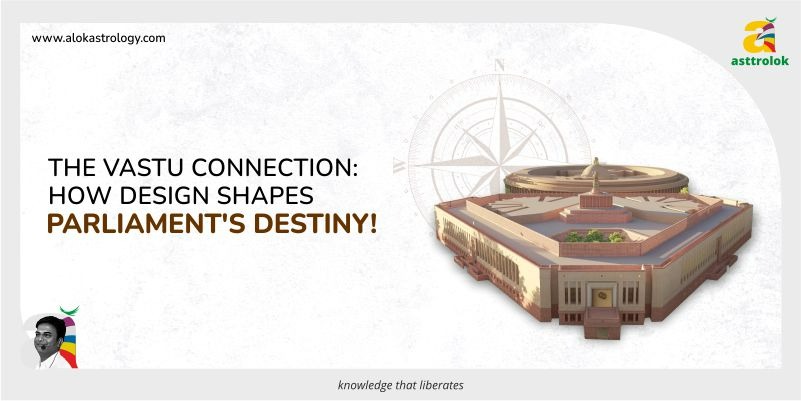Vastu is an ancient practice that emphasizes the fundamental link between design and energy in the field of architecture. Although frequently connected with houses and offices, Vastu principles also have an impact on the Parliament, which is the center of democratic government. In this article, we look into the fascinating relationship between Vastu and legislative architecture, emphasizing how it harnesses energy to create a setting that supports efficient governance
Get your dream house design according to Vastu. Get an online astrology consultation by the world-renowned astrologer Mr. Alok Khandelwal.
Creating a Harmonious Atmosphere:
A Parliament’s architecture is crucial in creating a peaceful and vibrant atmosphere within its borders. Vastu principles place a strong emphasis on energy balance and flow, ensuring a setting where legislators can gather and make crucial choices in harmony and clarity. Vastu aims to achieve an equilibrium that encourages productivity, collaboration, and favorable interactions among politicians by carefully examining the layout, orientation, and positioning of crucial elements.
Balancing the Elements:
The idea of harmonizing the five elements—earth, water, fire, air, and space—and their fundamental characteristics forms the basis of Vastu. Vastu incorporates these components into parliamentary design and makes use of their energy to affect the atmosphere generally. For instance, strategically placing fountains or water features can increase the flow of positive energy, and making the most of natural light and ventilation energizes the area, encouraging clarity of thought and a sense of vitality.
Symbolism in Design:
Vastu is aware of how deeply symbolism affects a person’s mind. These symbols, when included in the design of the Parliament, serve as potent reminders of democratic norms and principles, strengthening members’ feelings of duty and purpose. A symbolic narrative that inspires and stimulates everyone who enters the Parliament’s chambers is created by architectural aspects that symbolize strength and stability as well as subtle design elements that symbolize unity and progress.
The Significance of the Central Hall:
The focal point of political discussions and decision-making is the parliament’s main chamber. Vastu accords this area a lot of weight because it sees it as the building’s power hub. Vastu principles can be used when designing the center hall to improve the flow of positive energy, promoting clear communication, spoken word, and fruitful debates. The speaker’s dais, seating arrangements, and podium positioning should all be carefully considered in order to create a setting that promotes thoughtful discussion and group decision-making.
Harnessing Destiny:
Vastu has an impact on constitutional architecture that goes beyond aesthetics. According to popular belief, by following to Vastu principles, a Parliament can harness the energy of its surroundings and so influence the course of the country it represents. The Vastu-compliant parliamentary design promotes a sense of unity and purpose among the populace, which benefits the nation’s general development, stability, and prosperity.
Conclusion:
We start to understand the significant relationship between architecture and energy as we dig into the fascinating world of Vastu in parliamentary design. Vastu principles are incorporated into the design of a Parliament to promote harmony, healthy debate, and efficient governance. A nation’s future is shaped by the exact alignment of energies and symbolism within these sacred halls, laying the foundation for a vibrant democracy that survives across time.
